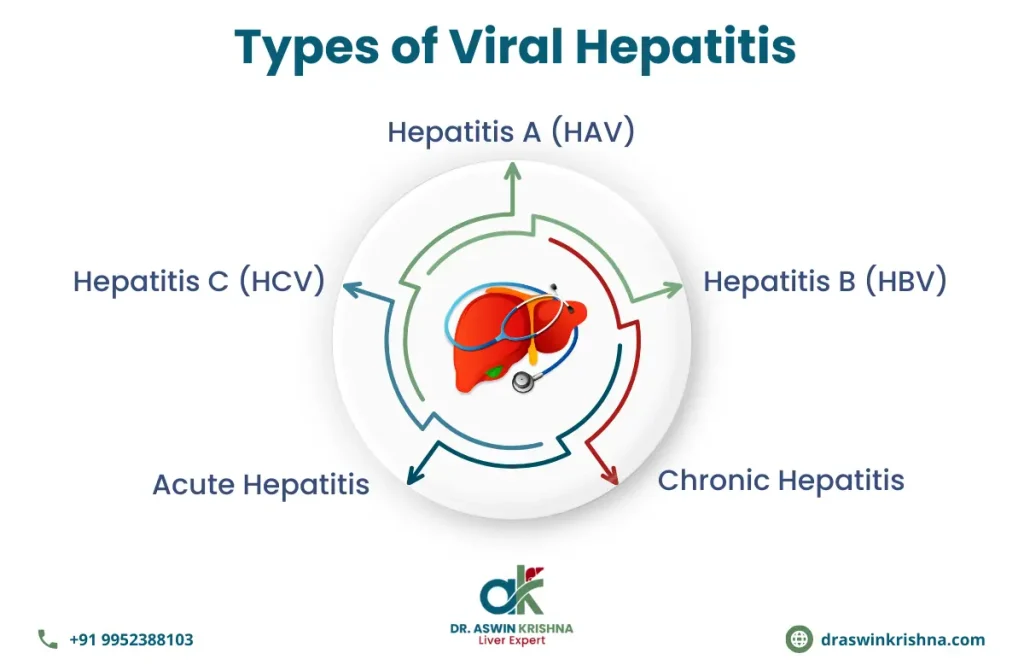Testing for viral hepatitis is essential for detecting and managing infections caused by hepatitis viruses. Hepatitis affects millions of people worldwide, leading to significant health complications if left untreated. This blog post explores the importance of viral hepatitis testing, the different types of tests available, and what you need to know about this critical health measure.
Importance of Testing for Viral Hepatitis
Testing for viral hepatitis is crucial because it allows for early detection and treatment of the disease. Early diagnosis can prevent severe liver damage and the spread of the virus to others.
Who Should Get Tested?
Everyone should consider getting tested, especially those in high-risk groups, such as healthcare workers, individuals with multiple sexual partners, people who inject drugs, and those with known exposure to the virus.

Types of Viral Hepatitis
Hepatitis A, B, and C
Understanding the types of testing for viral hepatitis is vital for selecting the appropriate testing method.
- Hepatitis A (HAV): Typically spreads through contaminated food and water.
- Hepatitis B (HBV): Spread through blood, semen, and other body fluids.
- Hepatitis C (HCV): Transmitted primarily through blood-to-blood contact.
Acute vs. Chronic Hepatitis
- Acute Hepatitis: A short-term infection that can resolve on its own or lead to chronic hepatitis.
- Chronic Hepatitis: A long-term infection that can cause significant liver damage, including liver cirrhosis and liver cancer.
Indications for Testing
- A viral hepatitis screening test is recommended for individuals at higher risk, including those with a history of blood transfusions before stringent screening protocols were established. These individuals may unknowingly carry the virus, making early detection vital to protect both their own health and prevent transmission to others.
- People who have engaged in high-risk behaviors, such as unsafe injection practices, multiple sexual partners, or tattooing with non-sterile equipment, should undergo a diagnostic test for hepatitis. Testing in these cases ensures timely identification and management of possible infection.
- Family members of patients with hepatitis B or C also fall under the category for testing. Close household contact or shared personal items can facilitate transmission, making proactive screening essential.
- Healthcare professionals with repeated exposure to blood and body fluids should prioritize testing. A diagnostic test for viral hepatitis allows them to monitor their health and take preventive steps if infection is detected.
- Pregnant women are advised to undergo hepatitis screening, particularly for HBV, to prevent vertical transmission to the baby. Detecting infection early helps doctors implement preventive strategies like vaccination and antiviral therapy to ensure maternal and neonatal safety.
Diagnosing and Managing Hepatitis
- Diagnosis begins with a diagnostic test for viral hepatitis, which helps determine whether the infection is acute or chronic. These tests often include liver function tests, viral load assessments, and imaging studies for accurate evaluation.
- The detection of chronic hepatitis b antibodies plays a critical role in distinguishing between past infection, immunity from vaccination, and ongoing infection. Understanding these markers allows healthcare providers to develop individualized treatment and monitoring plans.
- A diagnostic test for hepatitis helps assess the extent of liver inflammation or damage, which can influence treatment choices. Early identification of liver abnormalities ensures timely interventions to prevent complications like cirrhosis or liver failure.
- Management strategies vary based on the type and stage of infection. For example, antiviral medications may be prescribed for chronic cases, while acute cases might be closely monitored with supportive care.
- Long-term management focuses on lifestyle modifications, such as avoiding alcohol, maintaining a healthy diet, and preventing coinfection with other viruses. Regular monitoring is essential, as untreated viral hepatitis may progress to severe liver disease, including hepatocellular carcinoma. Patients with chronic hepatitis b antibodies require ongoing surveillance to detect reactivation risks.
Screening and Testing for HBV Infection
- Screening is particularly important for pregnant women, newborns, and individuals from regions with high HBV prevalence. Testing helps reduce the risk of complications, including liver cirrhosis and cancer. Comprehensive screening and timely interpretation allow for early treatment and preventive care, protecting both individuals and the wider community.
- Screening for HBV infection typically involves a viral hepatitis screening test, including markers like HBsAg, anti-HBs, and anti-HBc. These results help determine whether an individual is susceptible, immune, or chronically infected with the virus.
- The presence of chronic hepatitis b antibodies provides essential insight into an individual’s immune response. Anti-HBs suggests immunity, while anti-HBc indicates past or current infection, requiring careful interpretation by a physician.
- Many patients wonder, “Do I need to fast for a hepatitis blood test?” Generally, fasting is not required since these tests measure viral markers and antibodies. However, when combined with liver function panels, fasting may be suggested to ensure accuracy in related metabolic assessments.
- A diagnostic test for hepatitis not only confirms infection but also supports preventive interventions. For those not infected, timely vaccination provides lifelong protection against HBV.
Chronic Hepatitis B Antibodies
Understanding Chronic Hepatitis B
Chronic Hepatitis B is a long-term infection of the liver caused by the hepatitis B virus. Failure to manage it appropriately can result in severe complications.
Role of Antibodies
Chronic hepatitis B antibodies are proteins produced by the immune system in response to the HBV. These antibodies can be detected through blood tests to monitor the infection.
Types of Antibodies
- HBsAg (Hepatitis B Surface Antigen): Indicates an active infection.
- Anti-HBs (Hepatitis B Surface Antibody): Indicates recovery or immunity.
- Anti-HBc (Hepatitis B Core Antibody): Indicates past or ongoing infection.
Monitoring and Management
Regular testing for chronic hepatitis B antibodies is crucial for monitoring the infection and guiding treatment decisions. It helps in assessing the effectiveness of therapy and the need for further medical intervention.
Types of Hepatitis Tests
Testing for viral hepatitis typically involves blood tests to detect the presence of the virus, antibodies, or liver function. These tests help in diagnosing the type of hepatitis, monitoring disease progression, and determining the appropriate treatment plan. Below are the common types of tests used in diagnosing viral hepatitis:
- Liver Function Tests (LFTs): These blood tests measure the levels of liver enzymes and proteins to assess liver function and detect liver damage.
- Antibody Tests: These tests detect antibodies produced by the immune system in response to the viral infection, indicating past or present infection.
- Molecular Tests (PCR): Polymerase Chain Reaction (PCR) tests are used to detect the genetic material of the virus, confirming an active infection and determining the viral load.
- Antigen Tests: These tests detect viral antigens, typically for Hepatitis B, and help in determining the stage and severity of the infection.
Tests Related to Viral Hepatitis
| Test Name | Test Sample | What It Measures |
|---|---|---|
| Hepatitis A Antibody Test (Anti-HAV) | Blood | Detects antibodies indicating a current or past infection with HAV. |
| Hepatitis B Surface Antigen (HBsAg) | Blood | Identifies active hepatitis B infection by detecting HBV surface antigens. |
| Hepatitis B Core Antibody (Anti-HBc) | Blood | Indicates a past or ongoing infection with hepatitis B virus. |
| Hepatitis B DNA (HBV DNA Test) | Blood | Measures the amount of hepatitis B virus DNA to assess viral load. |
| Hepatitis C Antibody Test (Anti-HCV) | Blood | Detects antibodies that indicate exposure to hepatitis C virus (HCV). |
| Hepatitis C RNA (HCV RNA PCR Test) | Blood | Measures the presence of HCV RNA to confirm active infection. |
| Hepatitis D Antibody (Anti-HDV) | Blood | Identifies antibodies indicating infection with hepatitis D virus (HDV). |
| Hepatitis E Antibody (Anti-HEV) | Blood | Detects antibodies indicating a recent or past hepatitis E infection. |
| Hepatitis E RNA Test (HEV RNA) | Blood | Confirms active hepatitis E infection by measuring viral RNA. |
| Liver Function Tests (ALT, AST) | Blood | Measures enzymes that indicate liver damage or inflammation. |
Tests Related to Noninfectious Hepatitis
| Test Name | Test Sample | What It Measures |
|---|---|---|
| Autoimmune Hepatitis Panel | Blood | Detects specific autoantibodies associated with autoimmune hepatitis. |
| Alcohol-Induced Liver Disease Panel | Blood | Measures liver enzyme levels and GGT to assess liver damage from alcohol. |
| Non-Alcoholic Fatty Liver Disease (NAFLD) Imaging | Ultrasound/MRI | Visualizes fat deposits in the liver to diagnose fatty liver disease. |
| Wilson’s Disease Test | Blood/Urine | Measures copper levels in the body, identifying Wilson’s disease. |
| Alpha-1 Antitrypsin Deficiency Test | Blood | Detects deficiency in alpha-1 antitrypsin, a protein linked to liver damage. |
| Hemochromatosis Test | Blood | Measures iron levels to diagnose hereditary hemochromatosis. |
| Liver Biopsy | Tissue Sample | Assesses the extent of liver damage or cirrhosis. |
| Toxic Hepatitis Screening | Blood/Urine | Detects elevated levels of drugs or toxins responsible for liver damage. |
Getting Tested for Hepatitis
Testing for viral hepatitis plays a vital role in diagnosing liver infections and assessing liver health. Doctors often recommend tests to screen for hepatitis A, B, or C when patients show risk factors or symptoms like fatigue, jaundice, or abdominal pain. Blood tests are the most common diagnostic method and are performed in medical facilities.
Options for Hepatitis Testing
1. Clinical Testing
- Conducted in hospitals or diagnostic labs.
- Blood tests detect antigens or antibodies specific to hepatitis viruses.
2. At-Home Testing
- Convenient options are available for hepatitis B and C testing.
- Involves a simple finger-prick blood sample sent to a lab for analysis.
Types of At-Home Tests
- Hepatitis B Testing: Detects hepatitis B surface antigens.
- Hepatitis C Testing: Identifies hepatitis C antibodies.
Although at-home kits offer convenience, they cannot replace comprehensive medical care. Always consult a doctor for accurate diagnosis, follow-up testing, and treatment planning to ensure effective management of viral hepatitis.
Conclusion
Testing for viral hepatitis is a critical step in managing and preventing the spread of hepatitis viruses. By understanding the importance of screening and diagnostic tests, individuals can take proactive measures to protect their liver health. Regular testing, especially for those in high-risk groups, ensures early detection and effective treatment, ultimately leading to better health outcomes.
Read also Side Effects of Meloxicam.



